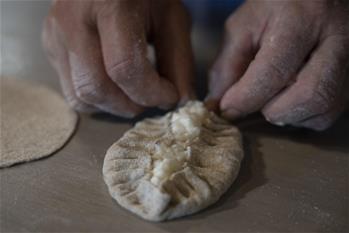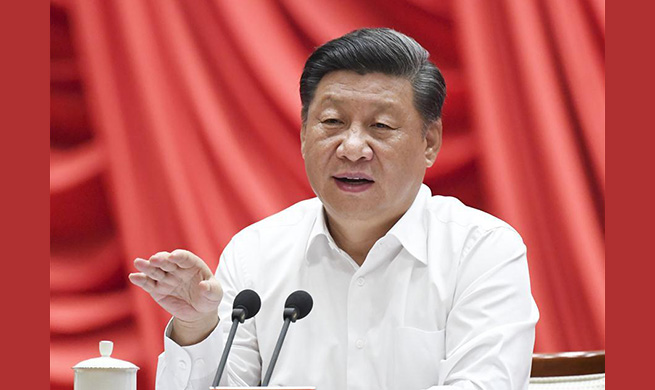by Marwa Yahya
CAIRO, Sept. 4 (Xinhua) -- Egypt's decision to liberalize custom dollar price for imported commodities will lead to a slight increase in the basic commodities prices without impacting the inflation rates, said economic experts.
Egypt's Ministry of Finance announced on Sunday the value of custom dollar for imports will be set according to the dollar prices at the Central Bank of Egypt (CBE) as of September.
In July, Egypt had kept the custom dollar price at 16 Egyptian pounds for 1 U.S. dollar for essential and strategic important commodities, and 16.68 pounds for non-essential ones.
"It was a sign of Egypt's stable economy and financial system," Waleed Gab-Allah, professor of financial and economic jurisdictions at Cairo University, told Xinhua.
He sees the decision was a step on the right track for the domestic market and the industry sector.
The price of the custom dollar was fixed for three years, on an exceptional basis, to stabilize the prices of commodities, particularly the imported items, which were skyrocketing after the floatation of the Egyptian pound in November 2016, the Ministry of Finance's statement read.
The gradual decline in the price of the dollar in the banks, recording 16.5 Egyptian pound for one dollar, renders the price of the custom dollar close to the current dollar price, the statement added.
Gab-Allah said the decision was "expected and normal" because fixing the price of the custom dollar failed to achieve its objectives which meant to protect the domestic industry and support the manufacturers from the hiking prices of the exchange rates after the floatation of the Egyptian pound, especially important goods like raw materials, feedstock and strategic commodities.
The custom dollar is applied in a country in certain stages of the economic reform program, he noted.
The Ministry of Finance has applied the custom dollar to uproot the currency black market amid shortage of the dollar in the Egyptian markets after the currency liberation, he explained.
However, the expert, who is also a member of the Egyptian Association for the Political Economy, highlighted the decision was "hasty" and it was better to postpone it because the dollar is forecasted to decline more to reach 16 pounds in the national banks.
He added the recent decision would slightly increase the prices, but he ruled out liberation of custom dollar would increase the inflation rates due to "the stability of the Egyptian pound value against the dollar."
Annual inflation rate in Egypt reached 7.8 percent in July compared with 13 percent in the same month in 2018, according to the country's statistics body.
"The difference in the price of the custom dollar and the CBE's dollar price was about 50 piasters," he stated, saying the price difference wouldn't exceed 3 percent on each imported commodity.
Since January 2017, the custom dollar prices had been adjusted four times.
Rashad Abdou, professor of economy in the Arab Academy for Administrative Sciences, agreed that the difference in the custom dollar prices and the dollar value in the banks is not big, noting it wouldn't affect the inflation current level.
He said some basic commodities like rice, sugar and oil wouldn't be impacted by the new decision because they are customs-free goods.
But, Abdou said "the government should supervise the markets to control the behavior of some merchants who will definitely increased prices of some commodities."
He called on the government to reduce the value of the custom dollar by 1-2 percent on the basic commodities like medicine and baby milk, deeming "the liberation of the custom dollar price will bring more revenues to the country's treasury."
He warned the new decision would increase the inflation rate in case of the local currency decline against the custom dollar.













